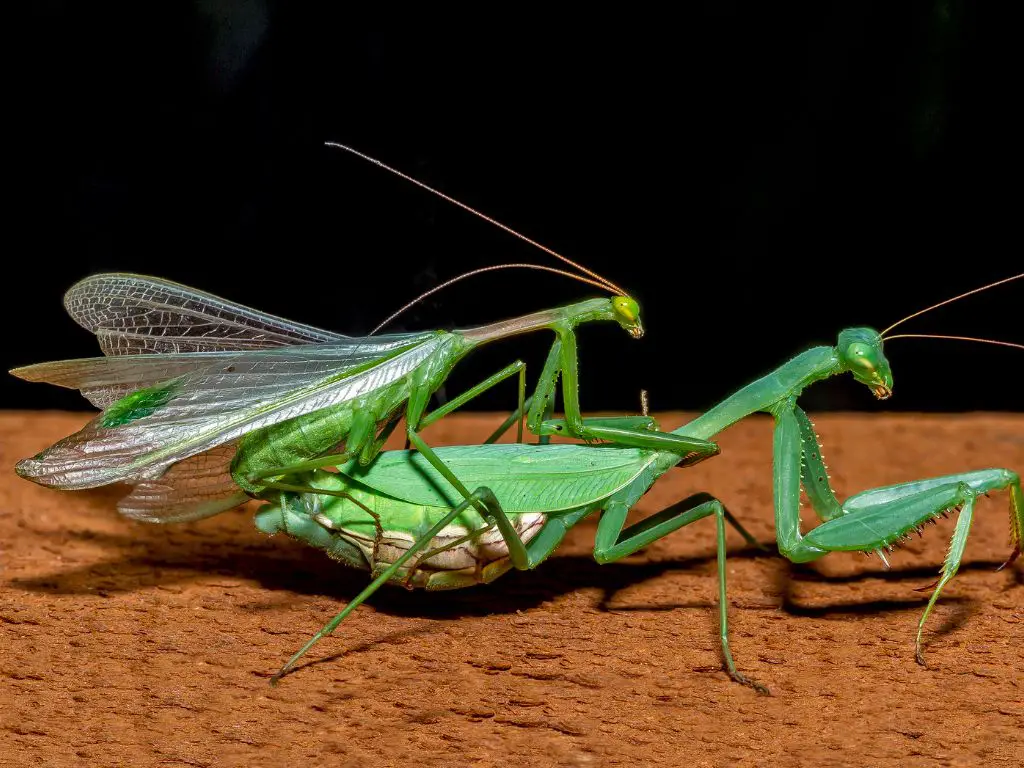Praying mantises are widely known for their predatory nature and unique mating practices, which involve the female consuming the male after copulation. While this behavior may seem bizarre to humans, it is a common occurrence in mantis species and serves an important purpose. This page will explore why do praying mantises eat their mates and how this behavior benefits them as a species.
Why do praying mantises eat their mates
Although it appears counterintuitive at first glance – there are many advantages associated with why do praying mantis eat each other during courtship rituals: namely providing necessary nutritional support for egg production along with improved protection against potential predators while simultaneously offering greater chances at successful gene transfer amongst future generations too!
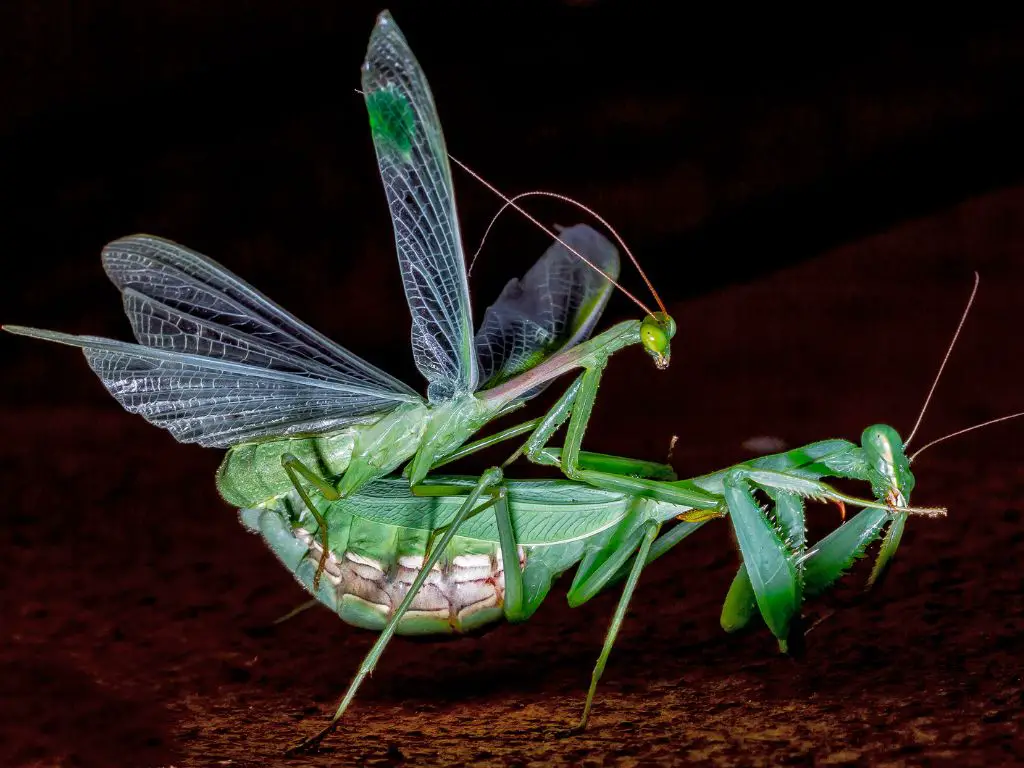
Why do female praying mantis eat the males
These insects are known for their distinctive predatory behavior, including their habit of cannibalism, or eating their own species. This behavior is not limited to males, as females also engage in cannibalism.
There are several reasons why praying mantises might engage in cannibalism, including:
-
Nutritional needs:
The main reason that praying mantises engage in sexual cannibalism is to ensure they receive enough nutrition during reproduction. Praying mantis females require more energy than males do when producing eggs, so by eating her mate she can gain access to his nutrients while also avoiding competition from other males who might try to mate with her again later on down the road. Additionally, studies have shown that female praying mantises tend to be larger than males due to increased feeding opportunities provided by consuming their partners – making them better able protect themselves against predators and increasing reproductive success overall for both sexes of these insects.
-
Competition for resources:
In some cases, praying mantises may eat their mates in order to eliminate competition for resources such as food, shelter, or access to mates.
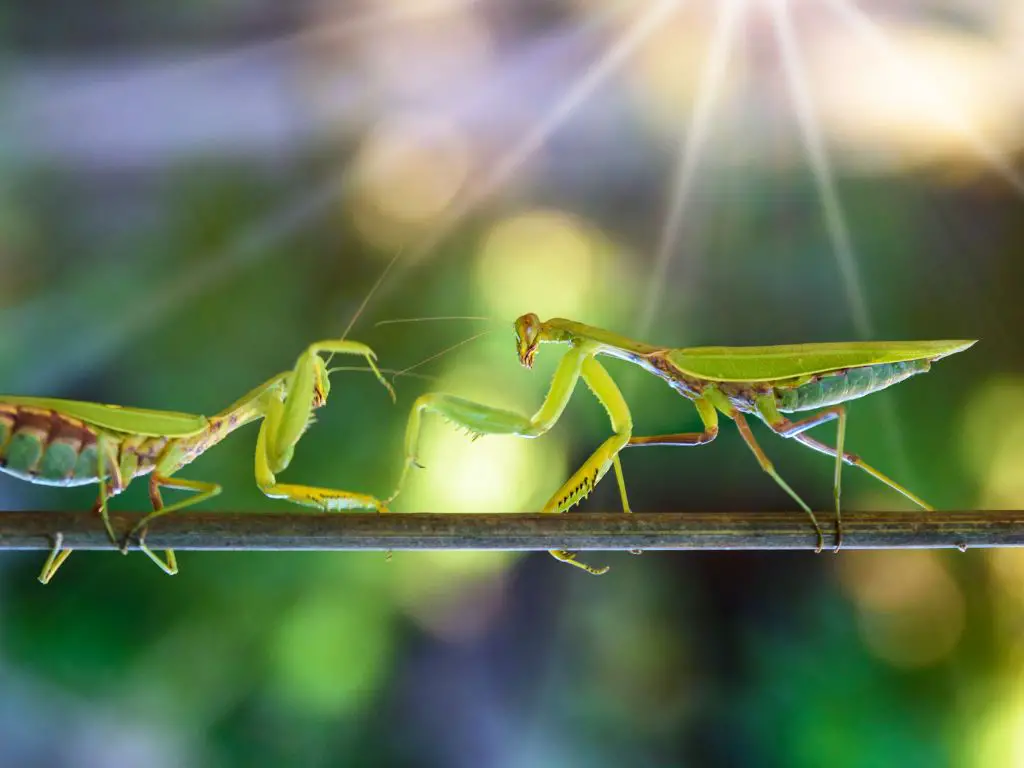
-
Protective measure:
Eating males could also serve as a protective measure against predators who might otherwise attempt to attack her while she’s vulnerable during mating activities . By consuming her partner quickly after copulating, she reduces both his chances at successful reproduction and her own risk associated with being caught mid-mating by an opportunistic predator looking for an easy meals
-
Reproductive benefits:
Some research suggests that female praying mantises may benefit reproductively from cannibalism, as it can provide them with additional resources that can be used to produce more eggs.
-
Evolutionary advantage:
In some cases, cannibalism may be an adaptive behavior that has evolved in praying mantises due to the selective pressures of their environment. There’s evidence suggesting that some male praying mantids actually prefer being eaten over not being eaten at all; if they sense danger or fear imminent death from another source (such as predation), then sacrificing themselves can help ensure survival of their genes through successful mating before dying off completely! In essence then – even though it seems like an extreme form of courtship – sexual cannibalism among these creatures may actually be beneficial in certain situations where resources are limited or threats abound outside the confines of a safe relationship between two individuals within same species groupings.
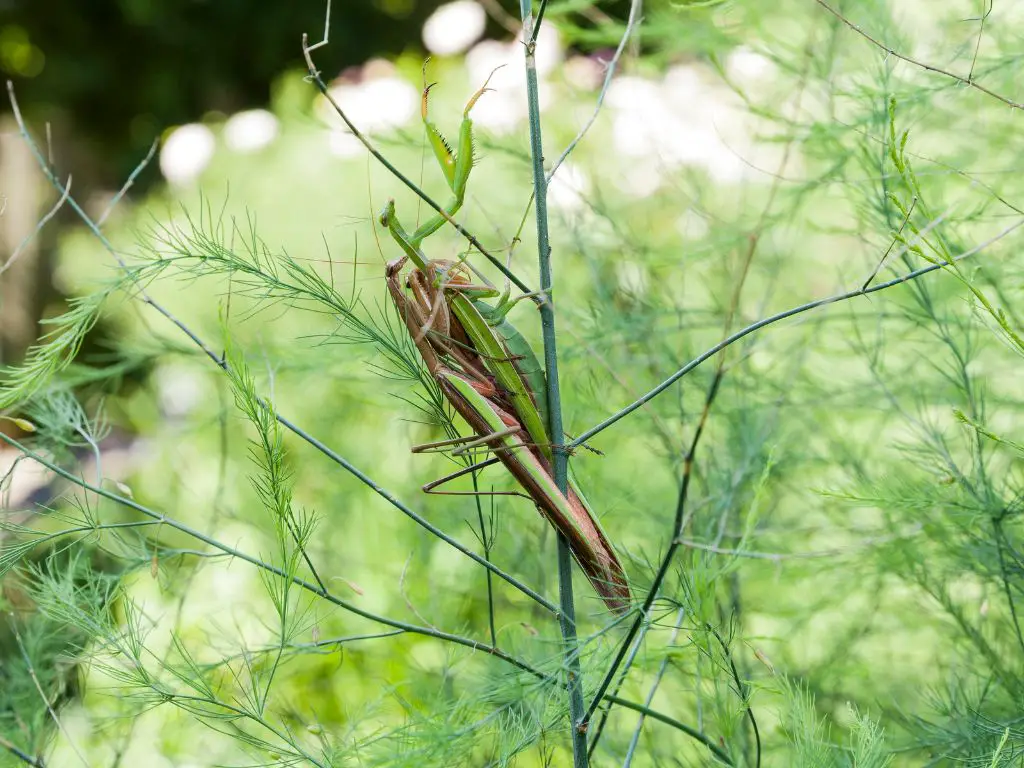
Cannibalism is not a common behavior in praying mantises, and it is not clear how widespread it is among different species or populations. Some research suggests that cannibalism may be more common in certain environments or under specific circumstances, such as when food is scarce.
Why do female praying mantis eat the males head
The female praying mantis is an intriguing species of insect, and one of its most fascinating behaviors is the tendency to consume the head of males after mating. This behavior has been observed in many species within this group, and there are a few potential explanations for why it occurs.
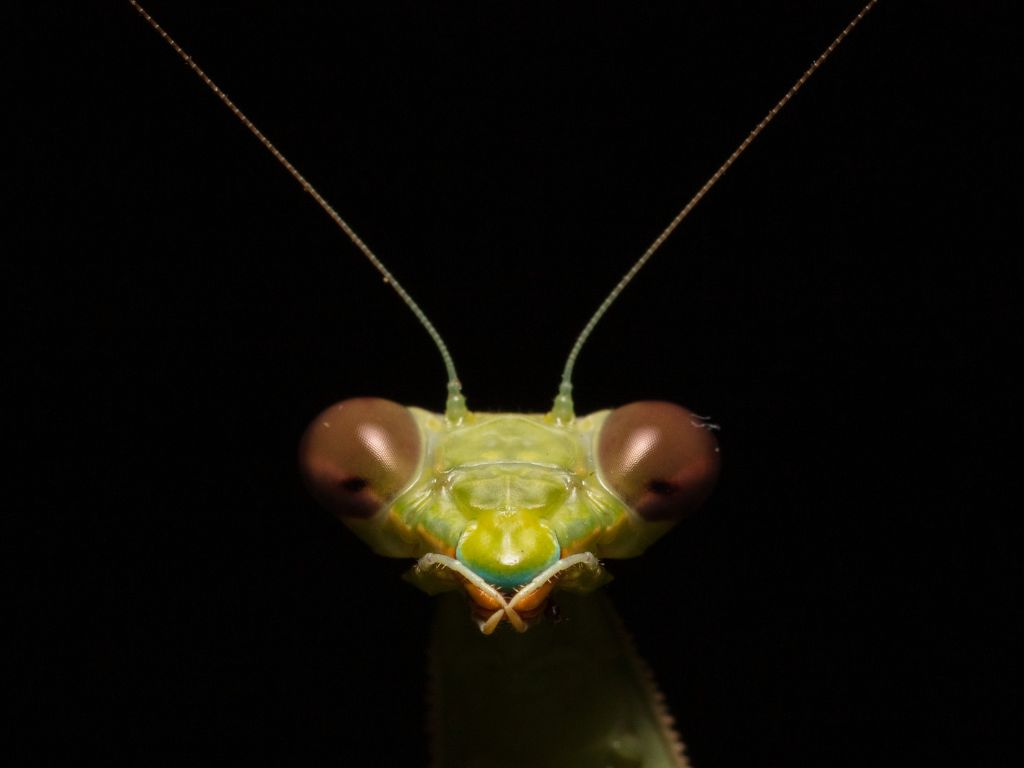
Eating the male’s head may provide a reproductive advantage by allowing females to gain additional resources that can be used for producing eggs or caring for offspring. Studies have shown that consuming males increases egg production in some species-level groups such as Hierodula majuscula – suggesting that females benefit from gaining access to nutrients found within their mates’ bodies during copulation or post-copulation cannibalism events. Additionally, it has been hypothesized that these nutrients could also help protect developing embryos against environmental stressors like temperature fluctuations or desiccation (drying out).
Some researchers believe resource acquisition may be another factor driving female praying mantis consumption behaviour – with studies indicating they use body parts as food sources when other prey items become scarce during certain times of year (e.g., winter months). For example, research on Tenodera aridifolia suggests females preferentially feed on male wings when food availability decreases due to seasonal changes – providing them with necessary vitamins/minerals needed for survival until better hunting grounds can be found again later in spring/summer seasons .
Do male praying mantis know they will die
The male praying mantis is a fascinating insect that has long held the interest of scientists and nature enthusiasts alike. But do they know their own mortality? Recent research suggests that, in some cases, male mantises are aware of the consequences of mating with a female – namely death.
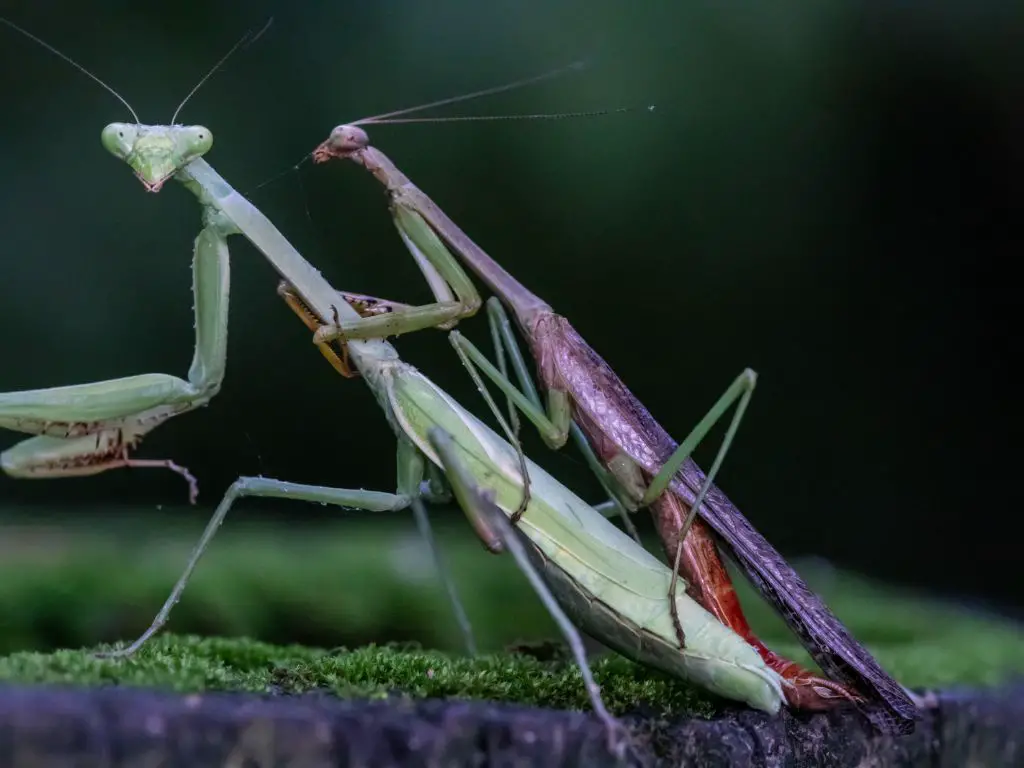
- Studies have shown that when presented with two potential mates – one larger than average and one smaller than average – males will choose to mate with the smaller partner more often. This behavior could be interpreted as an attempt by males to avoid being eaten during copulation by females who tend to eat their partners after mating.
- In addition, researchers observed decreased aggression levels among males when presented with larger females or those already carrying eggs; this further supports the idea that male mantises are aware of what may happen if they choose certain mates over others.
It appears clear from these observations then, that at least some species within this order exhibit signs suggesting an awareness on behalf of individual members about impending danger or death due to mating behaviors – indicating higher cognitive abilities than previously thought for such small creatures! While there is still much work left to do in understanding how exactly these insects think and behave, it’s exciting nonetheless knowing we can learn so much from such tiny organisms living all around us!
Do praying mantis eat their babies
One particular question about these creatures is whether or not they eat their own babies. While there is no definitive answer to this question, research has shown that praying mantis do not typically consume their young as part of their diet.
It appears that cannibalism among praying mantises occurs only in times when food sources are scarce, or if an individual female’s reproductive success would be improved by consuming her offspring. In other words, while it may happen occasionally in extreme circumstances, it does not appear to be a common behavior for this species overall.
In conclusion, the evidence suggests that praying mantis generally do not eat their own babies as part of normal feeding habits; however under certain conditions such as starvation or potential mating opportunities females may resort to eating some eggs from her clutch – though even then it likely happens rarely and with great reluctance on behalf of the mother-mantis!
Do you know any other creature that may kill and eat the male after copulation!

